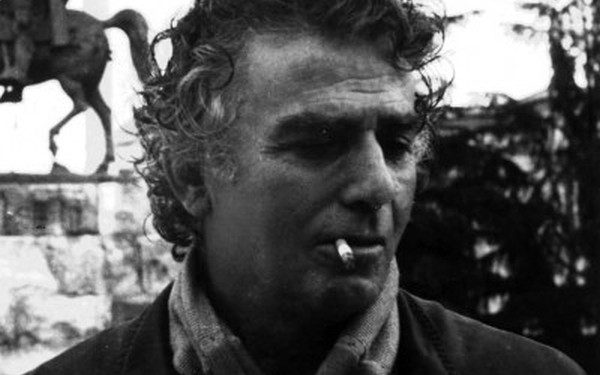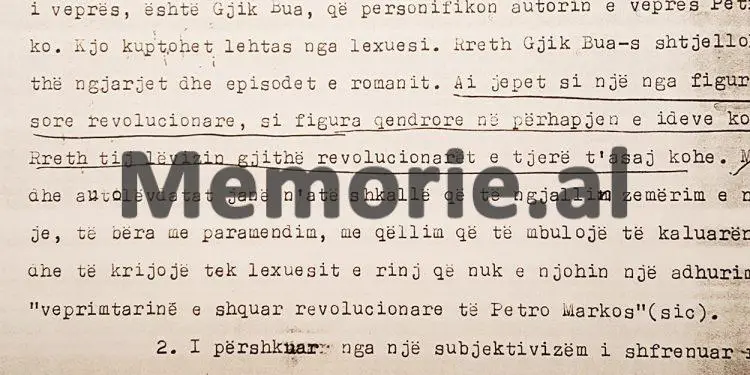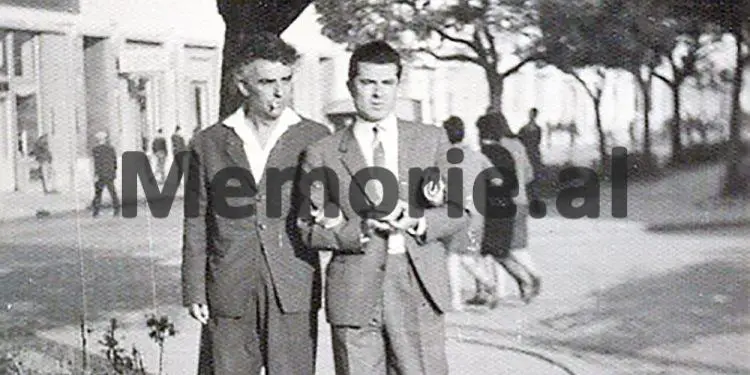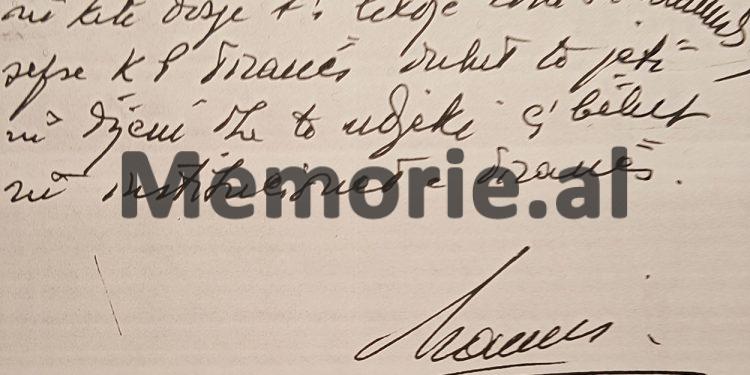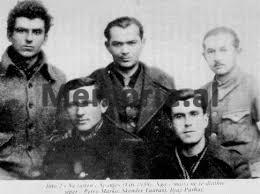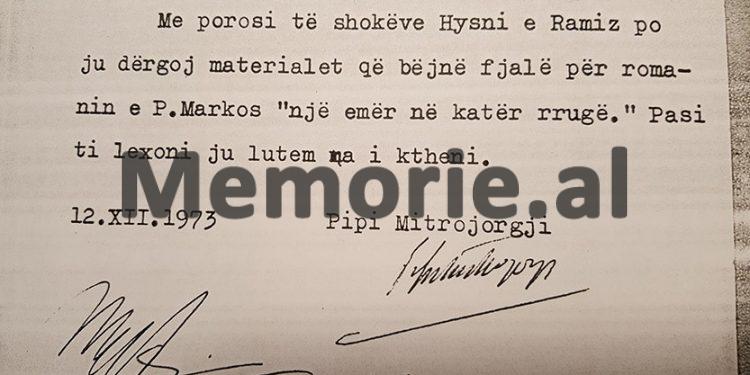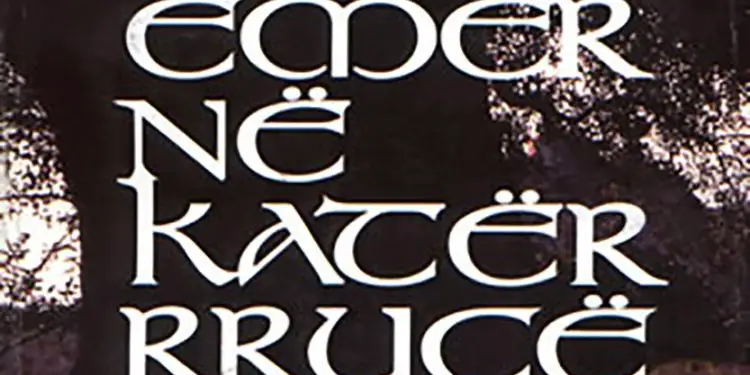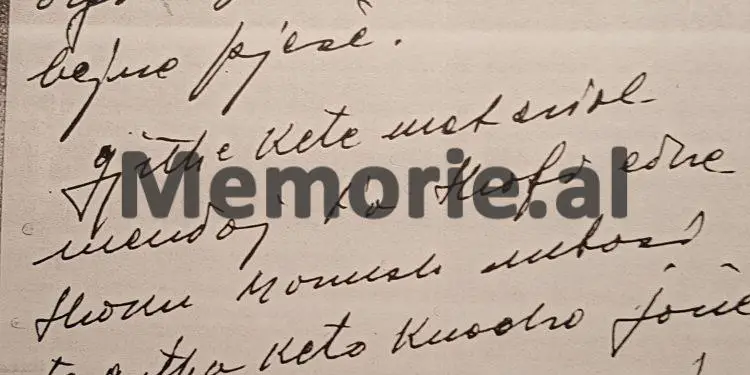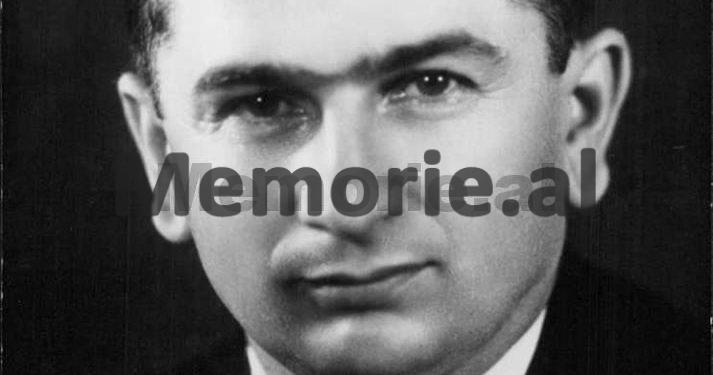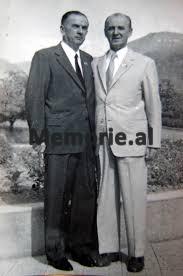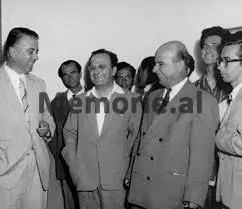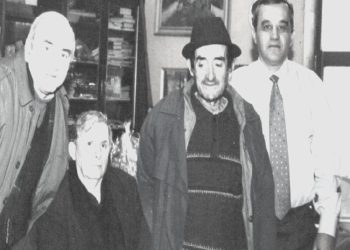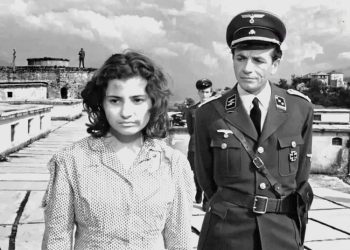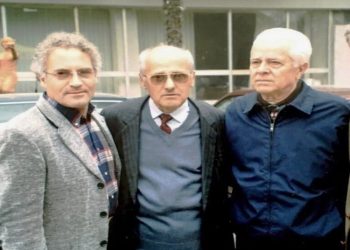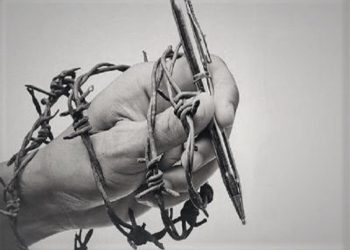Dashnor Kaloçi
Memorie.al/ publishes some archival documents extracted from the Central State Archive in Tirana which belong to the years 1972 – ’73, where there is a correspondence between the “Naim Frashëri” Publishing House and the Central Committee of the APS, regarding the novel ” A name in four roads”, by the writer Petro Marko, (where the figure of Enver Hoxha was treated), which was published after the review of the critic Dalan Shapllo and the approval of the Director of the House, Ali Abdihoxha and the editor Llazar Siliqi. All correspondence between the two secretaries of the Central Committee, Ramiz Alia and Hysni Kapo, with the Ministry of Education and the Publishing House “Naim Frashëri”, regarding the finding of the culprits who had allowed the publication of the book of the writer Petro Marko and the measures that should be taken against them, starting with the indemnification of the book that, by their order, would be made into cardboard and not a single copy of it would circulate!
The treatment of the figure of Enver Hoxha in a literary work or in the visual arts by writers and artists during the period of the communist regime before the 90s, was a very harmful problem and presented a great risk for the authors who took for dealing with the “figure of the main leader”, especially when he was at the epicenter of the work as its main character. The risk borne by the creators in case of non-approval of the work, which dealt with the “figure of the leader”, did not only harm the author of the work, but also the editors, reviewers or managers of the Publishing House and those of the Union of Writers and Artists who had given approval for its publication. However, that risk was taken on and tested by a considerable number of writers and artists, but not all of them managed to successfully pass the “trial of fire”, on which the “figure and role of the main leader” was still being developed in their creative imagination.
Among the first to experience this was the well-known writer Petro Marko, who in 1972-73, in his historical novel “A Name in Four Roads” (which was considered an autobiographical novel , took over and treated the figure of Enver Hoxha, mainly for the period of the Zogu Monarchy. Even treating him almost as the main character of his work, which was not only not allowed to circulate after its publication by side of the “Naim Frashëri” Publishing House, but it caused a real storm for all those who allowed its publication. And all this, since in his work, Petro Marko “had not correctly treated the figure and role of Enver Hoxha “?! As it seems, bad luck continued to follow Petro Marko “foot by foot” (in the first years after the war, he suffered several years in political prison), since the publication of his book coincided with the beginning of the spring of the year 1973, when Enver Hoxha undertook the great “storm” against writers and artists, where the author originating from the coast, suddenly happened in the center of that “cyclone”, even completely discovered.
All this is evident from these archival documents that are published for the first time and in full on the pages of this book, where the highest leaders, starting from Ramiz Alia, Hysni Kapo, Manush Myftiu, Mantho Bala, etc., have made a series of notes on them, giving relevant guidelines for the punishment of the author Petro Marko, as well as those who had allowed and given permission for the publication of that book, such as; Pipi Mitrojorgji, Ali Abdihoxha, Alqi Kristo, Dilaver Dilaveri, Dhurata Xoxe, Dalan Shapllo, etc. etc.
So great has been the alarm caused by that novel, that Ramiz Alia, rarely ever in all the documents he has seen and signed, has filled several whole pages with his writing for the punishment of those who allowed its publication, (which is evident from the corresponding facsimiles that Memorie.al is publishing exclusively in this article), a book that was only published with the collapse of the communist regime after the 90s.
Review of Petro Marko’s novel by Dalan Shapllo
Review of the novel
“Gjike Bua”, (“A name in four streets”) by Petro Markos
The new novel by Petro Markos, which reflects the events of Zog’s period, is in its entirety a positive work. The value of the novel is related to the wealth of facts brought by the author, the authenticity of the events and the faithful reproduction of the atmosphere of the time. The author intended to show the path of formation of four villagers (named Gjikë), under the influence of social circumstances and as a result of their character. In general, Petro Marko achieved this and showed the formation or degeneration of these types. Through their facts, the picture of life at that time emerges, with all the unwashed of the yard, of the debauched circles, with ignorance and brutality. In addition, the author has tried to give the revolutionary movement of the time, ordinary people of the people with their dreams and aspirations.
The work is written in a formal, literate and simple style. In the main parts, the novel arouses interest and believable. The novel has educational values.
Yes, the work needs to be reworked in several directions and at several important points. Reworking is necessary for the work to be more realistic, more convincing and to be at the level of the author’s good creations.
- The characters walk on their own path that has a life and artistic logic, but in this view, weaknesses and consequences are also noticed. The degeneration of a social type like Argjiri is generally well presented. The character of the Martyr is well rendered and has its own social meaning, but it is not pierced to the end. Thus, Martyr, an honest man, yes with fluctuations and love, sharp, but not deep, could hardly kill himself on April 7. Or it should be changed by linking it to the progressive movement; otherwise, we have to prepare a lot to be convinced of that gesture. Uncle Foti’s insanity, who was always joking, does not respond in the same way. In his relations with women, Mertiri should appear restrained: there is no reason to meet with Donika, since she has degenerated. Otherwise it becomes unfriendly and characterless. Likewise, it must be decided between Qazima and Mary, because one is too much.
Even the degeneration of Donika can be shown better, because the transition to the Italian, after love with Zogu, comes quickly and seems a bit mean.
- The remarks I made are related to the formation of the realism of the work. Likewise, in this aspect, the author may have other moments in mind. The novel follows the path of literature with a social direction, relying on the principle of historicism. There are also naturalistic tendencies, of collecting and introducing material without criteria, of numerous incidents and anecdotes.
The novel can be strengthened in its realism by being cleansed of anecdotes, of short incidents and romances that are told in the village. Some of them are pleasant and alternate with serious, tragic events; they speak of the humor and vitality of the people. But a sense of proportion must be maintained. In addition, it is good to penetrate, from time to time, the drama of life, the difficulties and the author is not left only with humorous intermezzo.
In order to strengthen the realism of the work and the treatment of the figures, it is necessary that King Zog is not portrayed only with his ironic adventures, but as a political, cunning, tyrannical and diabolical man in devising plans.
In the first part (Argjiri’s relationship with the King’s brother and Lejlana), the novel takes a not so realistic path, it turns to some extent into a kind of adventure and sentimental as in medieval sigh novels, which is also noticeable in the style. This part can be shortened and adjusted, because in general the work is realistic.
- The description of the movements, the beginnings of revolutionary communist propaganda is done well in the novel and helps to create the atmosphere of the work. But, I think, that the moral spirit that is characteristic of young people should come out more. As bearers of a new ideology, of new moral norms, they had loved each other openly and honestly in love. It is not about creating ascetic and pedantic relationships, but for a clear and more human ideal. It is necessary for the author to do a well-thought-out job to relieve the work from excessive eroticism, without criteria, from the blows of Suzi (which does not deserve so much attention although it may remain something like a truth of the time), from the sexual affection of both sisters for Mërtiri, the sensuality of Mari Shiroka (which is given in passing), etc. The work should be better permeated by a new morality and a more virtuous atmosphere.
- Comrade Enver’s figure, in the proportions that the author has put, I think it comes out well, with some prominent revolutionary and human features. But again, it should be thought that it should be made more concrete in any case, especially after liberation in the conversation with the main characters. This moment should not be passed over.
- In a special way, I call it necessary to say that the work can be shortened enough: relations with Lejlana and Xheladin, village anecdotes about stories outside the homeland, etc. The work can be compressed, freed from excessive material, the path of some characters can be better defined, the rare emphatic, agitative comments can be seen (especially the beginning and the end, when Argjiri is given importance).
With a careful work, the novel will become good and will help for the knowledge of that time and for the education of young people, who, in order to better understand today, must also know the past.
Dalan Shapllo
Tirana, December 17, 1972
Ramiz Ali’s note on Dalan Shapllos’ review
How about an autobiography or not
It catches Dalan’s eye.
These are the flaws that Dalani points out, right?
Are they ideological? Do they not stamp the novel?
And how then is it a positive work?
Ramiz
Ramiz Ali’s notes on the punishment of those who allowed the publication of Petro Marko’s novel
Friend Pipi
- Regarding Petro Marko’s novel, as it appears from your and the Ministry’s proposals, immediate action should be taken:Let Petro Marko be called by Comrade Mantho Bala, where Comrade Dritëro Agolli and Thanas Leci and Ali Abdihoxha are also present and be told that his book is not allowed to circulate. Criticize this book with arguments as ideologically crooked and damaging to the education of the masses. But Mantua should prepare well and talk so that Dritëroi also criticizes the book.
- To be presented in the basic organization of the Enterprise and to discuss the responsibility of Ali Abdihoxha, who allowed the publication of the book? Their responsibility is the biggest accusation, because the reviewers, as they say positively, have made remarks that the novel needs to be corrected. Dalani has important remarks. Why was it not taken into account? These remarks must be made one by one.
- In the same way, Llazar Siliqi and Dalan Shapllo should be criticized in the basic organization. Lazari as an editor also had the remarks of the reviewers. Why didn’t he insist on at least correcting them, regardless of the fact that he also accepted the novel? Although Dalani made remarks, several times on principle, why does he show the opinion that the novel is a positive and valuable work, so it should be published? No one draws attention to the fact that this book is autobiographical. Why so?
- All relevant state measures must be taken. Even Ali Abdihoxha’s leave, but also compensation. Everyone has received money: from Petrua to Lazari, reviewers and editors. According to the rules, it should be determined how to act.
- The book should be put on cardboard, destroyed and no copies left for circulation.
- I said it once again, in the meeting we had with all the press managers, that in Kosovo we should not send manuscripts in any way, but we can send copies of books, since they are released to us. Measures should be taken to withdraw Petro Marko’s book from Kosovo. However, under no circumstances should the book be allowed to be published there.
- Comrade Manush should also read these materials that you have in this file, because the Party Committee of Tirana must be aware and follow what is done in the institutions of Tirana.
11. XII.1973 Ramiz Alia
Pipi Mitrojorgji’s letter
By order of friends Hysni and Ramiz, I am sending you the materials that talk about Petro Markos’ novel “A Name in Four Roads”. After reading them, please return them.
12.XII.1973 Pipi Mitrojorgji
Hysni Kapo’s letter to Ramiz Ali regarding Petro Marko’s novel
Comrade Ramiz
Dalan Shapllo and Dilaver Dilaveri are reviewers of the book commissioned by the Publishing Company. The review was done in the fall of 1972. So this proves how many wrong concepts the reviewers have and it is even worse for Ali Abdihoxha, Xoxen, etc., since when they saw the review as it was done, they said that the novel should be corrected, while these they press it.
I think that in addition to the state and material measures that should be taken against them, they should also be accountable to the basic organizations of the party they belong to.
I think that Comrade Manush should also see all these materials, since all these cadres are under the supervision and as an official of the Party Committee of Tirana and the Party in the district should have full knowledge and follow the issues./Memorie.al
11.XII.1973 Enter Kapo




